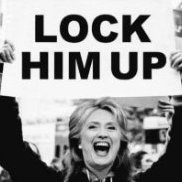SET In Worst Fall Since 9/11
-
Recently Browsing 0 members
- No registered users viewing this page.
Announcements
-
Topics
-
Latest posts...
-
1
Bruce Springsteen's Call to Action: Endorsing Harris, Criticizing Trump
KidRock is wearing Trump endorsed diapers after hearing this -
260
V P Debate
walz is the governor of the state that has Ilhan Omar as a congress woman what's the state slogan ? Tampons and Terrorists would you like some salt & pepper on that sole ? -
1
Keir Starmer’s EU Reset: A Strategy Built on Falsehoods
It dawns on the Telegraph that giving up the multiple concessions the UK had enjoyed within the EU wasn’t a good idea. Expect someone in their editorial office has lost the keys to their bulging project fear filing cabinets. -
15
Corruption scandal hits the brakes: Thailand’s bus industry whistleblows dirty dealings
Why is this a scandal if this is de facto business in Thailand? My expat Thai wife and I have talked about this and part of the reason neither of us want to live in Thailand. America can suck, but it aint bad at all. -
54
New McCharthyism Sweeping the USA and the World?: What examples have you seen?
Sometimes less is more. My eyes started to glaze over about half way through that. However, from what I did read, I have to agree. Don't worry, eat drink womanise or whatever makes you happy, as western civilisation is IMO heading directly into the dumpster of history, and not a thing that you or I can do about it, except try and find some enjoyment as the great experiment in democracy comes to a shuddering halt in wokism, PC and BS writ large. The saddest thing is that those that would have saved it, real men, have vanished. Now they are emasculated, beaten down, in thrall to womanhood, afraid to speak out, and generally neutered. I know as I was that way myself in my trade of nursing, unable to say what I thought as I knew my life would become a living hell if they had an inkling of my true thoughts. I had a few close shaves, and it wasn't pleasant at the time, and certainly put me off any more truth speak. Even the woman I used to love became a woke monster from hell, which was why she became my ex. -
4
THAILAND LIVE Thailand Live Saturday 5 October 2024
Bus Crashes into Pickup Truck, Which Overturns, 10 Injured in Collision: Pathum Thani A factory bus collided with a pickup truck carrying construction workers, causing the truck to overturn in front of a gas station, leaving 10 people injured. The accident occurred after the pickup truck abruptly cut in front of the bus, and the driver was unable to brake in time. Full story : https://aseannow.com/topic/1339869-bus-crashes-into-pickup-truck-which-overturns-10-injured-in-collision-pathum-thani/ -
0
Bus Crashes into Pickup Truck, Which Overturns, 10 Injured in Collision: Pathum Thani
A factory bus collided with a pickup truck carrying construction workers, on October 4, causing the truck to overturn in front of a gas station, leaving 10 people injured. The accident occurred after the pickup truck abruptly cut in front of the bus, and the driver was unable to brake in time. Police Lieutenant Panupong Wongrod from Suan Phrik Thai Police Station responded to the incident, which took place on the Rangsit-Pathum Thani Road in front of a gas station in Ban Klang Subdistrict, Mueang District, Pathum Thani Province. Officers from the traffic unit and rescue personnel from the Poh Teck Tung Foundation were dispatched to the scene. Upon arrival, rescuers found 10 injured men and women lying in front of the gas station, calling for help. They were quickly transported to a nearby hospital for medical treatment. The pickup truck driver, identified as Mr. Ramphai Nuyuenram, 53, was unharmed. The overturned Toyota pickup, registered in Ayutthaya, lay upside down with goods scattered around. Nearby, the bus, which was transporting factory workers, had a shattered windshield. The bus driver, Mr. Banluesuk, 34, waited for the police at the scene. Mr. Banluesuk explained that he had been transporting workers from an industrial estate when the pickup suddenly cut in front of him amidst rainy conditions, making it impossible to avoid the crash. According to Ms. Nipa, 56, the sister of the pickup truck driver, the injured workers were all construction labourers on their way from Khlong Si to Bang Kruai, Nonthaburi Province. After inspecting the scene, Lieutenant Panupong documented the evidence and arranged for the vehicles to be towed. Investigations are ongoing, and further interviews with the injured will be conducted to clarify the details of the accident. Picture from responders. -- 2024-10-05 -
104
Trump to remove legal immigrants.
So what flight will Melania and her parents be on???- 1
-

-
3
Melania Trump Praises Donald Trump in Rare TV Interview With Fox
Don't worry darlin', you'll be smiling again once he is back home for good after November 5. Well, until he is locked up that is !! -
26
Care Homes Urged to Embrace Transgender Identities in Elderly Care
I don’t know why you would want photos but a search on line for news on the subject might help you out: https://www.nbcnews.com/news/amp/ncna713741 -
15
Car Chase in Khao Talo Pattaya: Gunfire Erupts as Police Intervene in Love Triangle Dispute
Where's John Wayne when you need him? -
26
Care Homes Urged to Embrace Transgender Identities in Elderly Care
So you dreaming up a grievance in somebody else’s behalf. I’m sure you do know some carers. I’ve expressed my opinion on the work vital work carers do and the under appreciation of their contribution elsewhere in the forum. -
54
New McCharthyism Sweeping the USA and the World?: What examples have you seen?
So it's Trumpism, not McCarthyism. Try and get it right. -
-
69
Minister Pushes for Bangkok F1 Race Plan with 2024 Deadline
Key word being “international”. Thai standards on domestic safety matters are very poor or nonexistent
-
.png.3b3332cc2256ad0edbc2fe9404feeef0.png)







Recommended Posts
Create an account or sign in to comment
You need to be a member in order to leave a comment
Create an account
Sign up for a new account in our community. It's easy!
Register a new accountSign in
Already have an account? Sign in here.
Sign In Now